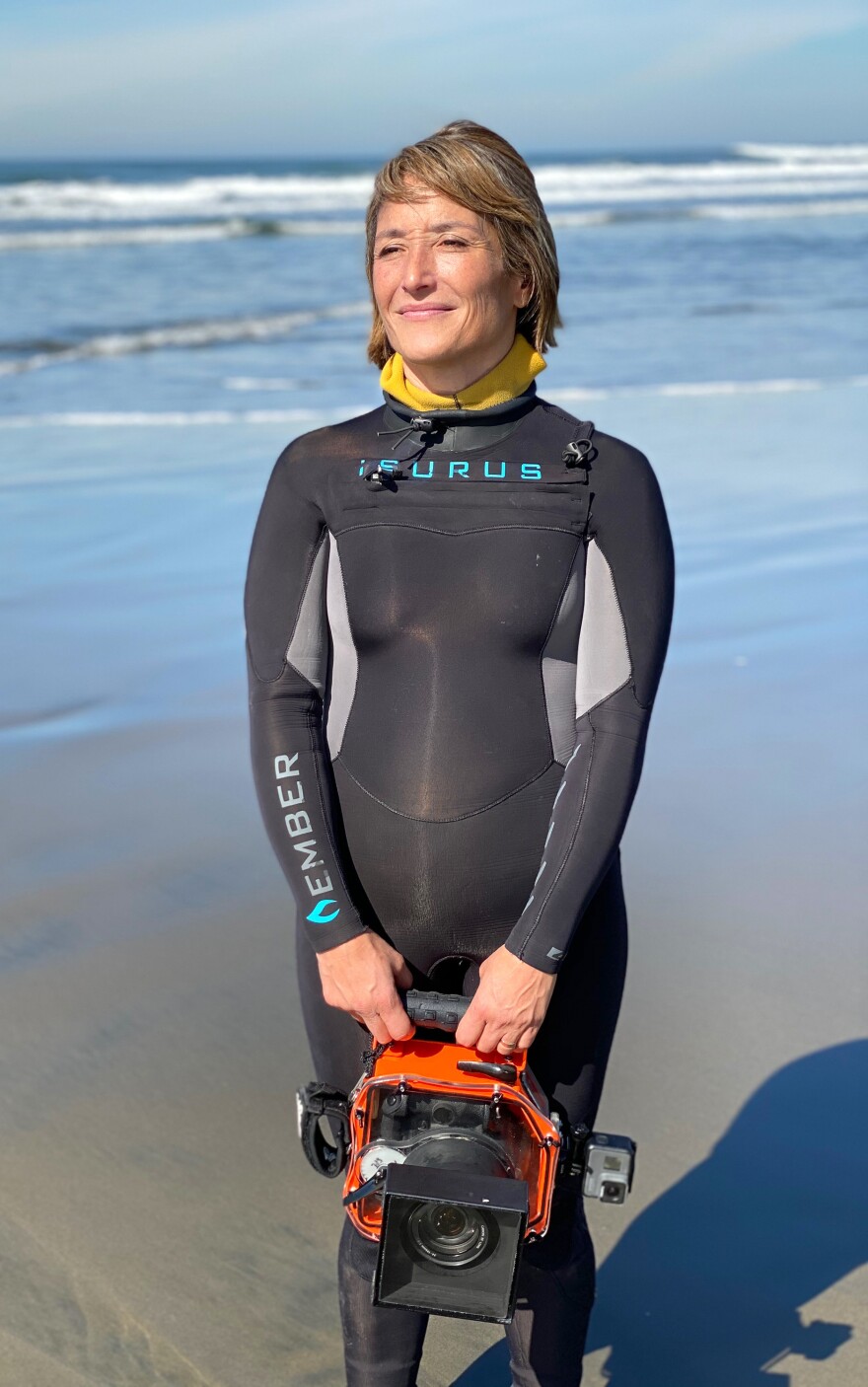On an unusually sunny morning at Ocean Beach on the west side of San Francisco, photographer Sachi Cunningham is putting on her wetsuit, and getting her camera gear ready. A sign in the parking lot warns: "Danger: People have drowned. Enter at your own risk.'

Huge waves, deadly rip currents and sharks have not stopped Cunningham, one of the first women shooting big waves in a male-dominated profession. I talked with her before she swam out with João De Macedo, a Portuguese big wave surfer.
"If you don't know what you're doing, it's really big and dangerous surf," Cunningham says.
"This is the entrance into the bay ... so the currents are really, really strong, " De Macedo explains.
You won't find turtles, coral or fish in Cunningham's images — she's part of a genre of ocean photography that only shoots waves and people who ride them.
To do this work, you need to be able to read the ocean: its winds, tides, waves — and you need to be strong. Taking photos where the waves break is like being in a washing machine. Your body is flipped around while you try to lift the camera and its waterproof housing — which is like a 25-pound dumbbell.
Some photographers train by running with rocks on the bottom of the ocean. Cunningham has been lifting weights since she was 10 and swam competitively for 20 years. She still works with a trainer and has taken a course that trained her to hold her breath for four minutes.

She's photographed enormous waves, up to 60 feet tall in California and Hawaii. And it was in Hawaii where Cunningham shot the first-ever big wave women's surf competition in 2016.
"To see this mass of women, to see two heats of women, that were out on the biggest day, on the same day the men were out, to me, it was monumental," she says. "Just to be there, they had won before they even started."
When Cunningham started photographing surfers two decades ago, there were very few women in the field. "I wanted to take photos of women because I had never seen photos of women," she says.

Surfer Magazine executive editor Ashtyn Douglas Rosa says Cunningham has changed the narrative in big wave surf photography. Previously, there was a sense that "women didn't belong in these waves or they weren't strong enough, they weren't capable of it or they weren't ready to compete in these waves," Douglas Rosa says. But Cunningham was there documenting it.
"Can't be what you can't see," Cunningham says.
Surfing has long been a bro culture, but more photos of women surfing have encouraged more women to get in the water. Some have become photographers — lighter, more affordable cameras and the explosion of social media have helped women get their work seen.

Back at Ocean Beach, Cunningham and De Macedo return to shore agreeing that it wasn't the best surf day. "We were hopeful we were gonna get a cover for Surfer Magazine, but ..." De Macedo laughs.
" ... Maybe not today," says Cunningham.
Cunningham has yet to get the cover — but she's got her sights set on something bigger anyway. Her goal is to continue shattering stereotypes and creating more possibilities for women on both sides of the lens.
Copyright 2023 NPR. To see more, visit https://www.npr.org.







